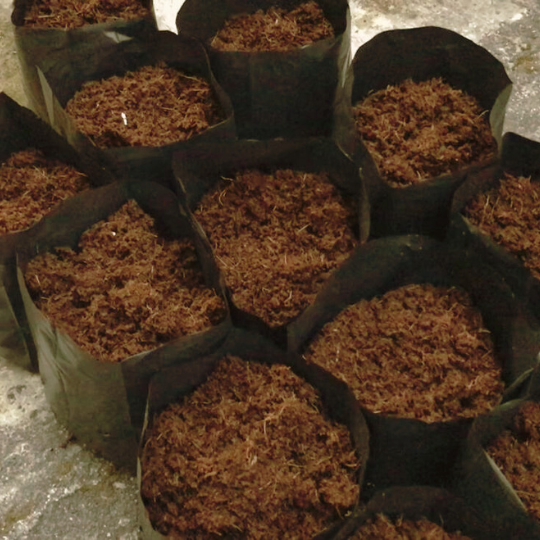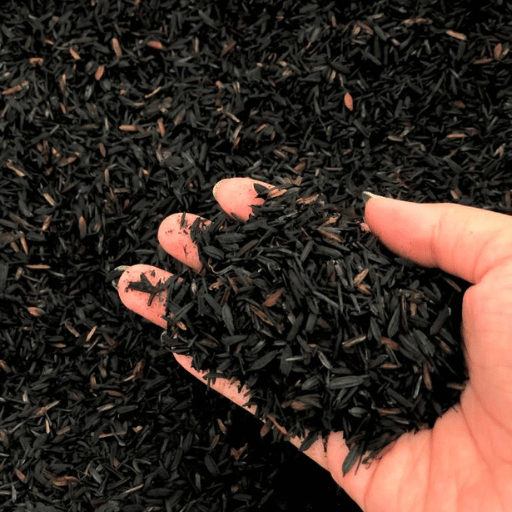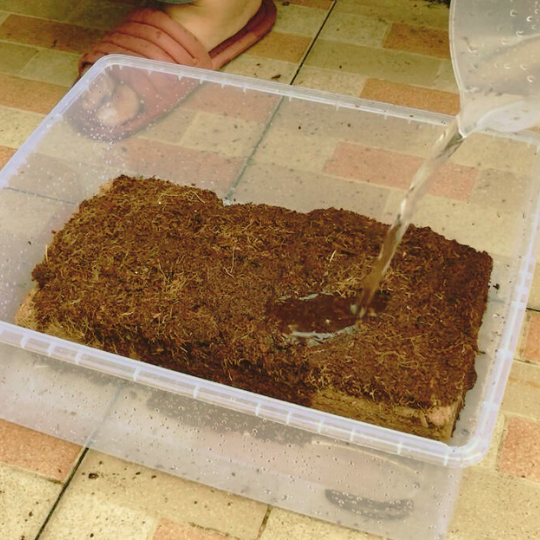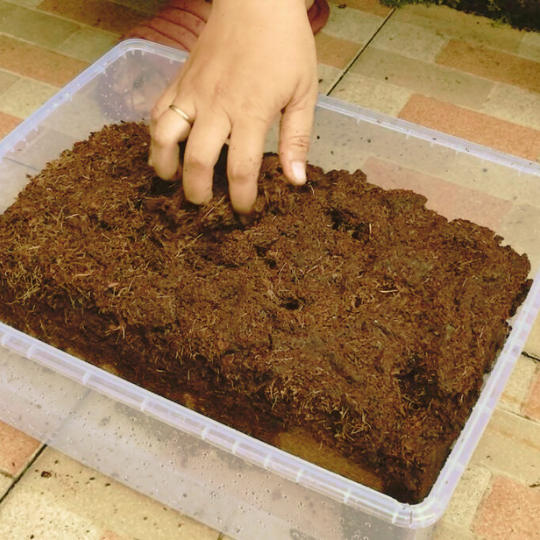Did you know that cocopeat uses in agriculture are transforming the industry, as high-quality cocopeat, a byproduct of coconut husks like coir fiber and coir pith, offers versatile applications? From improving soil structure to enhancing water retention, cocopeat, coconut coir, coconut husk, coir fibre, and coconut fiber offer a sustainable solution for modern farming practices. Its eco-friendly nature, ability to reduce the need for synthetic fertilizers, and use of cocopeat briquettes make it a game-changer in the agricultural industry. Whether used as a growing medium or a soil conditioner, cocopeat’s benefits are vast and impactful, promoting healthier crops and environmentally conscious farming methods.

Understanding Cocopeat
Definition and Origin
Cocopeat, also known as coco peat, is a natural fiber byproduct derived from coconut husks, used as a soil conditioner. It is widely used in agriculture for its excellent water retention properties, especially in coco planting. The origin of cocopeat can be traced back to South and Southeast Asia, where coconuts are abundantly grown.
Cocopeat has gained popularity due to its versatility, sustainability, and use. It is available in various forms such as cocopeat blocks, discs, and briquettes for use. This eco-friendly alternative, coco peat, to traditional soil has become a staple in modern farming practices.
Key Properties
Cocopeat stands out for its ability to retain moisture while still providing adequate aeration to plant roots. Its high porosity allows for optimal root growth and nutrient absorption. Cocopeat has a neutral pH, making it suitable for a wide range of plants without the need for additional amendments.
Environmental Impact
The production of cocopeat contributes to sustainable waste management practices by utilizing coconut husks that would otherwise go to waste. Its biodegradable nature ensures minimal environmental impact, making it a clean coir product that aligns with eco-conscious farming methods.

Benefits of Cocopeat in Agriculture
Soil Structure Improvement
Cocopeat aids in improving soil structure by enhancing aeration and water retention capacity, leading to healthier plant growth. It prevents soil compaction, promoting root development.
The fibrous nature of cocopeat helps in creating a loose soil structure, allowing roots to penetrate easily and absorb nutrients efficiently. This promotes overall plant health and growth.
Enhanced Water Retention
Cocopeat’s ability to retain water up to 8 times its weight ensures a steady water supply for plants, reducing the frequency of irrigation. This property is crucial in drought-prone areas.
Its high-water holding capacity makes it an ideal choice for areas with erratic rainfall patterns, ensuring consistent moisture levels for plant growth. This reduces water wastage and enhances crop yield.
Sustainable Farming Practices
The use of cocopeat promotes sustainable farming practices by reducing the dependence on traditional soil amendments. Its renewable nature and biodegradability make it an environmentally friendly choice.
Farmers using cocopeat experience reduced environmental impact due to its organic composition and minimal processing requirements. This aligns with modern agricultural trends towards eco-friendly practices.
Applications in Modern Agriculture
Potting Mix Use
Cocopeat, a versatile material, is extensively used in horticulture as a component of potting mixes. It aids in water retention and root aeration, promoting healthy plant growth. The fibrous structure of cocopeat ensures optimal moisture levels, reducing the risk of overwatering.
In potting mixes, cocopeat acts as a sustainable alternative to traditional peat moss, contributing to environmental conservation efforts. Its ability to hold nutrients and release them gradually benefits plants by providing essential elements for growth. Moreover, cocopeat’s pH-neutral nature makes it suitable for a wide range of plants, including acid-sensitive varieties.
Hydroponics Medium
In hydroponic systems, cocopeat serves as an excellent growing medium due to its high water retention capacity and good drainage properties. Its lightweight nature facilitates easy handling and transportation within hydroponic setups. Horticulturists favour cocopeat for its ability to support plant roots while maintaining proper moisture levels crucial for hydroponic cultivation.
Using cocopeat in hydroponics reduces the need for soil, making it a space-efficient and clean option for indoor farming. Its sterile composition minimises the risk of pests and diseases, ensuring a healthier growing environment for plants.
Soil Amendment Role
When used as a soil amendment, cocopeat enhances soil structure by improving aeration and moisture retention. It aids in breaking up compacted soils, promoting better root development and nutrient absorption by plants. Cocopeat contributes organic matter to the soil, enriching its fertility and supporting microbial activity.
Incorporating cocopeat into soil helps reduce water usage through enhanced moisture retention, making it an eco-friendly choice for sustainable agriculture practices. Its slow decomposition rate ensures long-lasting benefits for soil health and plant growth.

Challenges and Considerations
Potential Limitations
Cocopeat, while beneficial, has limitations in agriculture. It may compact over time, reducing aeration for roots.
Moreover, cocopeat requires careful management of water as it can retain moisture excessively, causing root rot.
Best Practises for Use
To overcome limitations, mix cocopeat with other substrates to improve aeration. Adding perlite or sand can enhance drainage.
Incorporating organic fertilizers into cocopeat can provide essential nutrients for plant growth. Regular monitoring of moisture levels is crucial.
Summary
You’ve now grasped the uses and benefits of cocopeat in agriculture, along with its modern applications and associated challenges. Cocopeat stands as a versatile solution for enhancing soil quality, promoting plant growth, and conserving water in agricultural practices. Despite the hurdles faced, its advantages far outweigh the obstacles, making it a valuable resource for sustainable farming methods. As you delve deeper into incorporating cocopeat into your agricultural endeavors, remember to consider the best practices and potential limitations to maximize its efficacy. Embracing cocopeat can revolutionize your approach to farming, leading to more efficient and eco-friendly outcomes. Start exploring the possibilities today for a greener tomorrow.

Frequently Asked Questions
What is Cocopeat and how is it used in agriculture?
Cocopeat, also known as coir pith, is a versatile growing medium made from coconut husks. It is used in agriculture for improving soil structure, water retention, and aeration in various applications like potting mixes, hydroponic systems, and coco peat.
How does Cocopeat benefit agriculture practices?
Cocopeat enhances soil fertility by promoting better root growth, improving water retention, and reducing the need for frequent irrigation. Its eco-friendly nature aids in sustainable agriculture practices, contributing to healthier plant growth with reduced environmental impact.
In what ways can Cocopeat be utilised in modern agricultural techniques?
Cocopeat finds extensive use in modern agriculture for seed starting, soil amendment, mulching, and as a component in growing media blends. Its versatility allows for customised applications in hydroponics, landscaping, nurseries, and greenhouse cultivation.
What are the challenges associated with using Cocopeat in agriculture?
Despite its numerous benefits, challenges such as high initial cost, potential salt content affecting certain crops, and the need for proper pH management exist when using cocopeat. Understanding these challenges is crucial for effective integration into agricultural practices.
What considerations should farmers keep in mind when using Cocopeat?
Farmers should consider factors like proper irrigation practices to prevent waterlogging, monitoring nutrient levels due to cocopeat’s low nutrient content, and adjusting pH levels accordingly. Sourcing quality cocopeat from reputable suppliers ensures optimal results in agricultural applications.
In conclusion, if you are eager to delve deeper into the details of coir products, feel free to explore our website at https://cocopeatcocofiberaustralia.com/. Additionally, for direct and instant connection with our team, you can reach us through the following WhatsApp link https://wa.me/61412773364. We look forward to providing you with the information and assistance you need.
